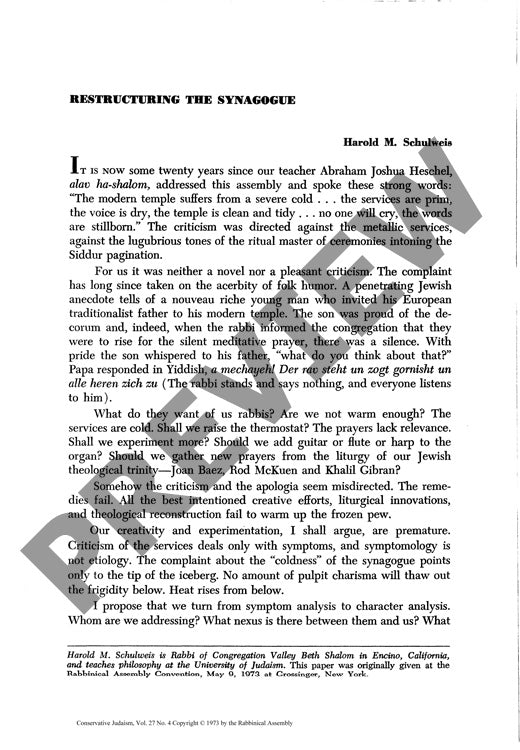Restructuring the Synagogue
Couldn't load pickup availability
The declining vitality of modern synagogues stems not from outdated rituals or uninspiring leadership, but from a profound shift in Jewish identity and communal engagement. As traditional religious Jews and secular ideological Jews have given way to an emerging "psychological Jew"—marked by privatism and resistance to formal obligations—synagogues face an existential crisis of depersonalized worship and institutional irrelevance. Through ethnographic observation, congregational case studies, and analysis of worship patterns within a Conservative synagogue, this research reveals that conventional solutions like liturgical innovation and rabbinical charisma fail to address the core challenge of interpersonal disconnection among congregants. The implementation of havurot—intimate learning and celebratory communities of roughly ten families—demonstrates a promising path forward. These small fellowship groups successfully foster authentic Jewish engagement through shared home-based rituals, collaborative learning, and mutual pastoral care. By decentralizing synagogue authority and prioritizing community formation over worship reform, the havurah model transforms isolated Jewish audiences into interconnected Jewish assemblies. This structured small-group approach respects individual autonomy while building collective Jewish identity, offering a viable framework for synagogue revitalization in an age of psychological Judaism.

More Information
-
Physical Description
-
Publication Information
Published 1973
ISBN
-
Publication Credits
Harold Schulweis

